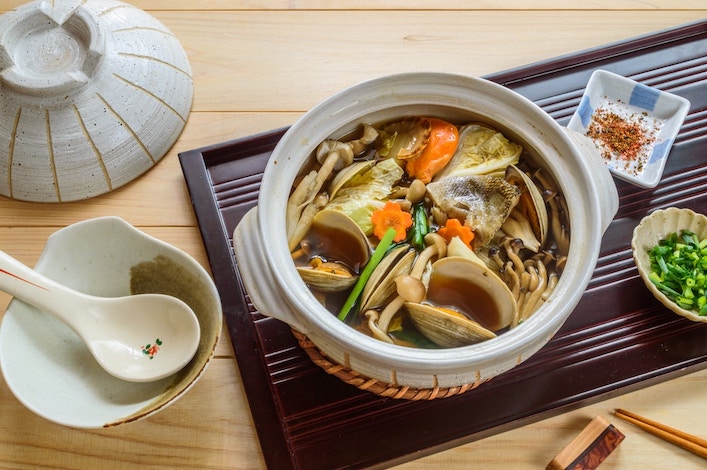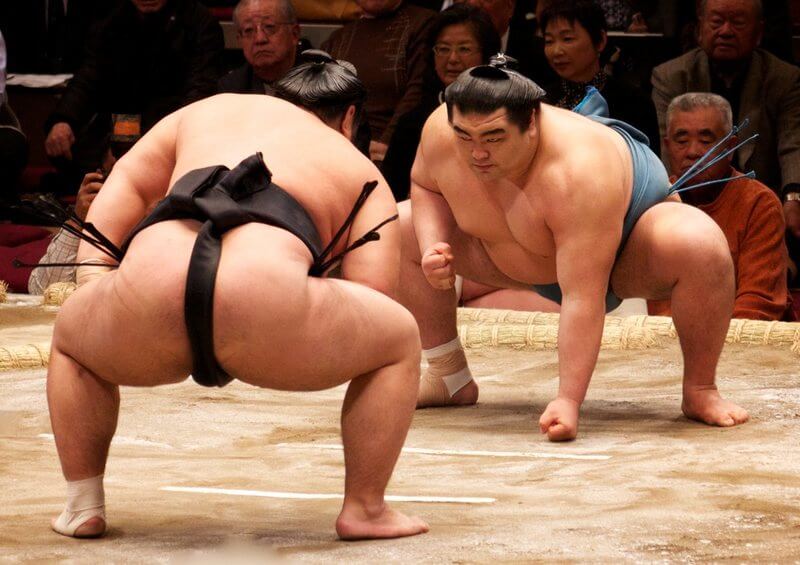
Sumo wrestlers are known for their enormous size and unique diet and lifestyle. They follow a strict diet and exercise regimen, which is essential for their performance in the ring. Sumo wrestling is a traditional sport in Japan, tracing its origins back to ancient times. It is a unique form of wrestling that involves intense physical and mental exertion.

This blog post aims to provide a comprehensive guide to the diet and lifestyle of Sumo wrestlers. Through this post, readers will gain insight into the unique world of Sumo wrestling and learn about the crucial role diet and lifestyle play in the life of a Sumo wrestler.
Sumo wrestling is a sport that is deeply ingrained in the Japanese culture and has been practiced for centuries. The essence of Sumo wrestling lies in the physique of the wrestlers, which sets them apart from other athletes. To achieve such a massive buildup, Sumo wrestlers follow a strict diet composed of high-calorie, high-protein foods that aid in gaining weight and building muscle mass. In this section, we will discuss the diet and lifestyle of a Sumo wrestler.
Sumo wrestlers’ diet, rich in high-calorie and high-protein foods, helps them gain weight and build muscle. They consume about 20,000 calories daily, ten times the average adult male’s recommended intake. Essentially, a Sumo wrestler’s diet equals ten people’s caloric intake.
The diet mainly consists of chanko nabe, a hot pot dish composed of meat, fish, and vegetables. Chanko nabe is prepared in large quantities and is consumed in one sitting. The dish is high in protein, carbohydrates, and healthy fats, making it an ideal meal for the wrestlers. In addition to chanko nabe, other high-calorie foods such as rice, eggs, tofu, and dairy products are also included in the Sumo wrestler’s diet.
There are several staple foods that make up a significant portion of a Sumo wrestler’s diet. One of the most popular foods is chanko nabe, which is a hearty stew that consists of chicken or beef broth, vegetables, tofu, and meat or fish. The dish is rich in protein, healthy fats, and carbohydrates, making it an excellent source of energy for the wrestlers.
In addition to chanko nabe, Sumo wrestlers consume large quantities of rice, which is a staple in the Japanese diet. Rice is high in carbohydrates and helps the wrestlers gain weight quickly. Other staple foods in the wrestler’s diet include eggs, vegetables, and dairy products such as cheese and yogurt.
The diet of a Sumo wrestler is an essential component of their training regimen. It plays a significant role in helping them achieve their desired physique and build the necessary muscle mass to compete in the sport. The high-calorie, high-protein diet aids in weight gain, which is a crucial aspect of Sumo wrestling.
A wrestler’s weight is a determining factor in their success in the sport. The heavier the wrestler, the more force they can generate during a match, making it easier for them to push their opponent out of the ring. Therefore, a wrestler’s diet is critical in helping them achieve and maintain the necessary weight to compete in the sport.
Sumo wrestlers focus their diet on high-calorie, high-protein foods like chanko nabe, rice, eggs, vegetables, and dairy products. This diet crucially supports weight gain and muscle development, enabling them to achieve the physique necessary for success in the sport.
A day in the life of a Sumo wrestler is characterized by intense training and strict adherence to tradition. Sumo wrestlers lead a structured lifestyle that requires discipline and dedication.
A typical day for a Sumo wrestler begins early in the morning with training. Wrestlers train for several hours each day, focusing on building strength and endurance. After training, wrestlers typically take a nap to conserve their energy for the rest of the day.
Sumo wrestlers consume a large breakfast meal that primarily consists of rice, soup, and protein. The wrestlers then spend the rest of their day engaged in various activities, including participating in promotional events or meeting their fans.
Sumo wrestling requires a lot of physical strength and mental fortitude from the competitors. We can use these award medals to motivate sumo wrestlers. Medals can motivate them to get better rankings. They will love this gift.
Our leading tech firm crafts custom software, web & mobile apps, designed with your unique needs in mind. Elevate your business with cutting-edge solutions no one else can offer.
It is possible to use awards in other ways as well. When you want to run a marathon but can’t keep up and want to give up, you can use medals to motivate yourself to keep running. Sometimes all it takes is a simple medal to push you to do something you find difficult. Get a customized award.

In the evening, wrestlers enjoy a sumptuous dinner with their counterparts, coaches, or sponsors. The dinner usually consists of Chankonabe, a protein-rich stew that is the staple dish for Sumo wrestlers, which is essential for providing the wrestlers with the required calories and energy. Sumo wrestlers frequently get to bed early to prepare for the next day’s training.
Rituals are central to the Sumo tradition, and Sumo wrestlers are required to follow strict customs and rules. Each bout commences with a series of rituals designed to show respect for the sport and the opponent. At the start of each match, wrestlers throw salt and stomp their feet in a ritualistic manner before resuming their positions.
Sumo rituals also extend beyond the ring. For example, wrestlers are expected to dress in traditional Japanese attire, which typically includes a Kimono or Yukata. The wrestlers are also expected to follow specific rules, such as always entering a room with their left foot first, to maintain the sport’s purity and tradition.
Sumo wrestling demands high levels of physical strength, agility, and power. Wrestlers undergo intense training, which includes lifting weights, practicing wrestling techniques, and drills to improve their stamina and balance. Sumo wrestlers can weigh up to 600 pounds, and maintaining a hefty weight is essential to execute their moves and dominate their opponents.
The sport also places a high demand on a wrestler’s mental fortitude. Wrestlers must maintain a calm and focused demeanor to execute their techniques and overcome the psychological challenges presented by a competitive opponent. As in many combat sports, the mental aspect of Sumo wrestling is critical to a wrestler’s success.
Sumo wrestlers live a rigorous lifestyle, adhering strictly to tradition, prioritizing physical and mental strength. They display discipline, dedication, and respect, mirroring the cultural and historical significance of this ancient Japanese sport.

While the diet and lifestyle of a sumo wrestler are necessary to compete at a high level, they do pose potential health risks. Here, we will discuss these risks and examine how the sumo lifestyle may impact overall health and well-being. We’ll also provide tips on how to adopt aspects of the sumo lifestyle in a healthy and safe way.
One of the most significant health risks associated with the sumo wrestler’s diet is obesity. The diet is high in calories, carbohydrates, and fats, which can lead to excessive weight gain. Additionally, the sedentary lifestyle of a sumo wrestler may exacerbate the problem.
Sumo wrestlers also consume a considerable amount of alcohol. Heavy drinking can lead to liver damage, increased blood pressure, and even cancer.
Despite the potential risks, the sumo lifestyle does have some positive effects on overall health and well-being. For example, the rigorous daily training regimen can lead to improved cardiovascular health, increased strength and endurance, and reduced stress levels.
The traditional Japanese diet is also known for its health benefits. The diet is rich in whole grains, vegetables, and fish, which are all essential for maintaining good health. Additionally, the emphasis on communal meals and sharing food is thought to promote social bonding and improve mental health.
If you’re interested in adopting aspects of the sumo lifestyle, there are some things to keep in mind to do so safely:
Incorporating aspects of the sumo lifestyle into your daily routine can be a fun and rewarding way to improve your health and well-being. Just remember to do so safely and in consultation with a healthcare professional.
Summary: The diet and lifestyle of a sumo wrestler is a unique and fascinating subject, and we have learned a lot about it in this guide. Sumo wrestlers consume a lot of calories, but they also eat healthy and nutrient-dense foods, such as chankonabe, a protein-rich stew. They also engage in intense physical activity, spending hours training and participating in competitions.
Final Thoughts: While sumo wrestling is not a sport that everyone can or wants to participate in, we can all learn a lot from the healthy habits of sumo wrestlers. By incorporating healthy, nutrient-dense foods into our diets, and engaging in regular physical activity, we can improve our health and well-being.
Call to Action: We encourage our readers to consider incorporating some of the healthy habits of sumo wrestlers into their own lives. Whether it’s adding more nutritious foods to your diet, or committing to a regular exercise routine, taking small steps towards a healthier lifestyle can go a long way in improving your overall health and well-being.
Hey, thank you for reading this blog to the end. I hope it was helpful. Let me tell you a little bit about Nicholas Idoko Technologies. We help businesses and companies build an online presence by developing web, mobile, desktop, and blockchain applications.
We also help aspiring software developers and programmers learn the skills they need to have a successful career. Take your first step to becoming a programming boss by joining our Learn To Code academy today!
Be sure to contact us if you need more information or have any questions! We are readily available.